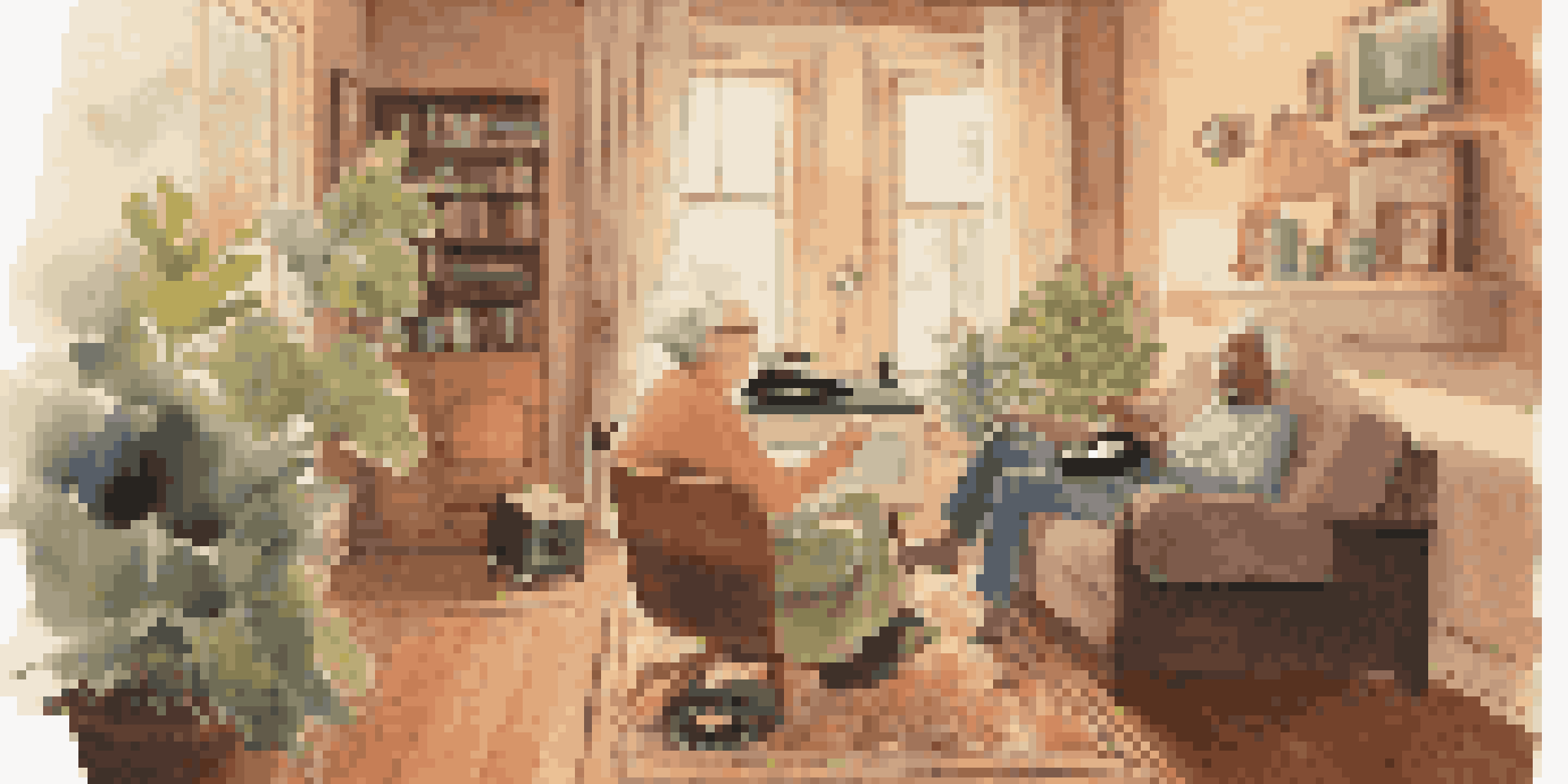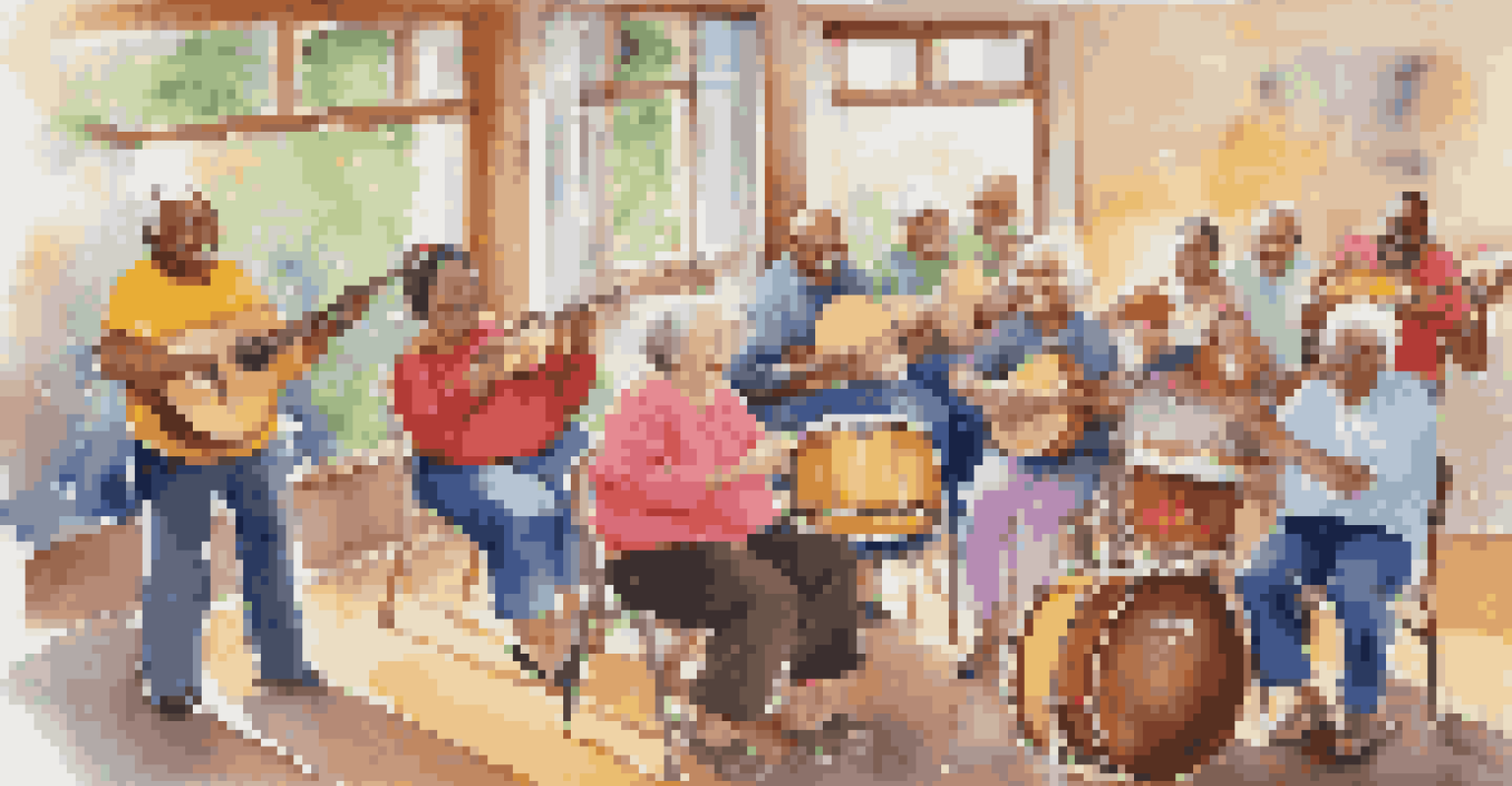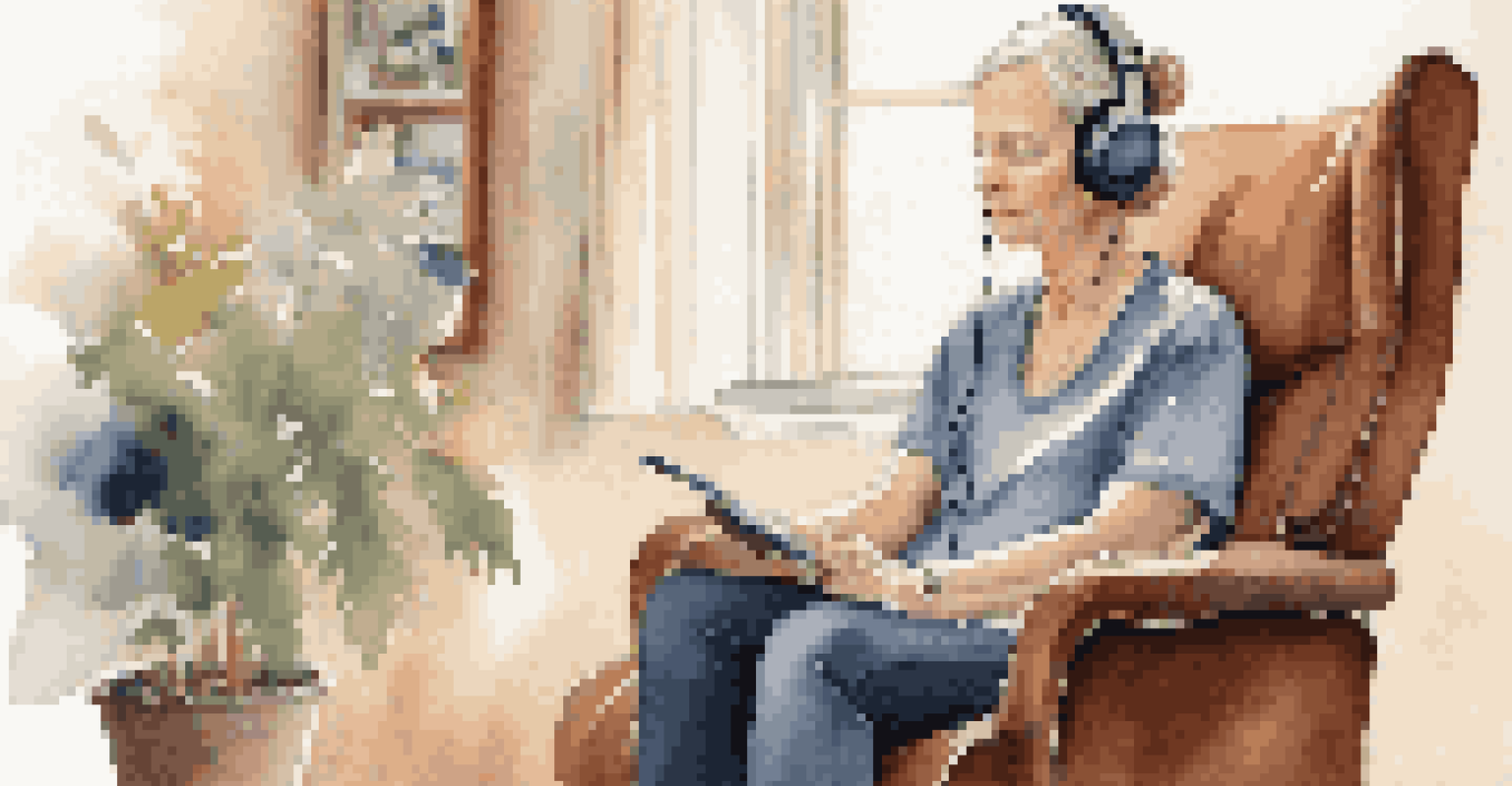The Role of Music in Supporting Caregivers of Aging Adults

Understanding the Caregiver's Journey
Caregivers play a crucial role in the lives of aging adults, often juggling multiple responsibilities. They provide physical, emotional, and social support, which can lead to feelings of stress and burnout. Understanding their journey is essential in finding ways to ease their burden and enhance their well-being.
Music is the shorthand of emotion.
The emotional toll of caregiving is significant, with many caregivers experiencing isolation and fatigue. These challenges can affect not only their mental health but also their ability to provide care effectively. Therefore, it's vital to explore supportive strategies that can help them manage these challenges.
Music emerges as a powerful tool in this context. By incorporating music into their daily routines, caregivers can find moments of respite and joy, making their journey more manageable and fulfilling.
The Therapeutic Power of Music
Music therapy has been shown to have profound effects on mental and emotional health. It can reduce stress, improve mood, and even enhance cognitive function. For caregivers, engaging with music can serve as a therapeutic outlet, providing a necessary break from the demands of their role.

When caregivers listen to or create music, they often find a sense of calm and relaxation. This can lead to improved emotional resilience and a greater capacity to cope with daily challenges. Additionally, the act of making music can foster creativity, offering a joyful distraction from caregiving duties.
Music Eases Caregiver Burden
Incorporating music into caregiving routines can reduce stress and enhance emotional well-being for caregivers.
Research indicates that music can trigger the release of dopamine, a chemical linked to pleasure and reward. This biological response can help caregivers feel more positive and energized, ultimately benefiting both themselves and those they care for.
Creating a Musical Environment at Home
Incorporating music into the daily lives of caregivers and aging adults can create a soothing atmosphere. Simple acts like playing favorite songs during meals or having background music during activities can enhance the overall mood. These small changes can make a significant difference in the caregiving experience.
Where words fail, music speaks.
Consider creating playlists that resonate with both the caregiver and the aging adult. Songs from their younger years often evoke fond memories and can stimulate conversation, fostering connection. This shared experience can be uplifting and serve as a reminder of joyful times.
Additionally, using music during moments of stress can help calm both the caregiver and the person receiving care. It can provide a comforting backdrop during challenging tasks, allowing for a more peaceful environment.
The Role of Community Music Programs
Community music programs can be a vital resource for caregivers. These initiatives often provide opportunities for caregivers to connect with others in similar situations while enjoying music together. Such programs can reduce feelings of isolation and foster a sense of belonging.
Participating in group music activities can also serve as a stress-reliever. Caregivers can engage in singing, drumming, or even music appreciation, allowing them to unwind and recharge. This collective experience can be both uplifting and empowering, reminding caregivers that they are not alone.
Community Programs Foster Connection
Engaging in community music programs allows caregivers to connect with others, reducing feelings of isolation and providing support.
Moreover, these programs often welcome aging adults as well, promoting intergenerational connections. Sharing musical experiences can strengthen bonds and create memorable moments for both caregivers and their loved ones.
Using Music for Emotional Expression
Music can be a powerful medium for emotional expression, especially for caregivers who may struggle to articulate their feelings. Writing songs or journaling about experiences while listening to music can provide a healthy outlet for processing emotions. This practice can help caregivers better understand their feelings and find ways to cope.
Creating personal playlists that reflect a caregiver's mood can also serve as a form of self-care. Whether it's uplifting anthems or soothing ballads, music can provide the right soundtrack for navigating various emotions. This intentional approach to music can foster mindfulness and self-awareness.
Furthermore, sharing these musical experiences with aging adults can open up avenues for discussion. It encourages caregivers to talk about their feelings and challenges, fostering deeper connections with their loved ones.
The Science Behind Music's Impact
Numerous studies highlight the positive effects of music on mental health. Research shows that listening to music can lower cortisol levels, a hormone associated with stress, while boosting feelings of happiness. This scientific backing reinforces the idea that integrating music into caregiving can be beneficial.
Additionally, music has been shown to improve memory and concentration, which can be particularly useful for caregivers managing complex tasks. By using music as a tool, caregivers can enhance their focus and productivity, making their responsibilities feel less overwhelming.
Music as a Self-Care Tool
Using music intentionally can empower caregivers to prioritize their self-care and enhance their overall health and happiness.
Understanding the science behind music's impact can empower caregivers to utilize it more effectively. By recognizing its potential benefits, they can prioritize music as an essential part of their caregiving routine.
Encouraging Self-Care Through Music
Self-care is vital for caregivers, yet it can often be overlooked. Incorporating music into self-care routines can help caregivers prioritize their well-being. Whether it's setting aside time to listen to favorite tunes or attending a concert, these moments can rejuvenate their spirits.
Engaging in music can also encourage physical activity, such as dancing or walking while listening to upbeat songs. This not only promotes physical health but also releases endorphins, contributing to a more positive mindset. Self-care through music can be both enjoyable and beneficial.

Ultimately, caregivers should view music as a form of self-care, allowing them to recharge and reconnect with themselves. By embracing this practice, they can better navigate the challenges of caregiving while maintaining their own health and happiness.
Conclusion: Embracing Music as a Caregiving Tool
In conclusion, music holds a transformative power for caregivers of aging adults. It provides an avenue for emotional expression, fosters connection, and promotes self-care. By recognizing and embracing the role of music, caregivers can enhance their own well-being while enriching the lives of those they care for.
As caregivers navigate their journeys, integrating music into their routines can serve as a beacon of hope and joy. It reminds them that they are not alone and that there are tools available to support their mental and emotional health.
Ultimately, music is not just a form of entertainment; it is a vital ally in the caregiving process. By harnessing its power, caregivers can find strength, resilience, and connection in their important roles.